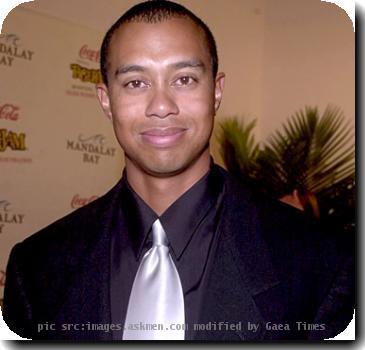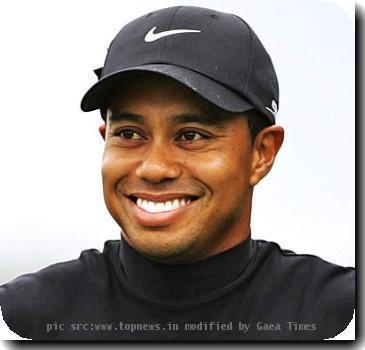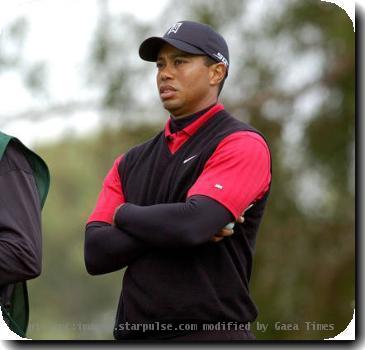Kaymer wins the PGA and shares the stage with Johnson’s bunker penalty
By Doug Ferguson, APSunday, August 15, 2010
Kaymer wins PGA in playoff; Johnson out on penalty
SHEBOYGAN, Wis. — Few things make a major championship more memorable than a playoff.
This one will be remembered for the guy who wasn’t there.
Martin Kaymer’s name is forever in the record books as the winner of the PGA Championship. But it’s Dustin Johnson whose story will be the tournament’s defining memory.
“I think it’s very sad,” Kaymer said. “To see that he didn’t have a chance to win a major, or to win a golf tournament … it’s very sad to see. I don’t know what to say.”
Johnson was knocked out of Sunday’s playoff because of a two-stroke penalty for grounding his club in a bunker he figured for a footpath. A tiny patch of sand well behind the ropes on the 18th fairway that spectators had trampled over all week. A rules violation he never thought was at issue.
“Never once did it cross my mind it was in a sand trap,” Johnson said.
But rules are rules, and never moreso than in the honorable game of golf. This, after all, is a game where the athletes call fouls on themselves.
And this one was posted for everyone to see — in the locker room and on every tee box.
“Honestly, I don’t think anyone reads the sheets,” said Nick Watney, Johnson’s playing partner. “I mean, we’ve played in hundreds of tournaments, we get a sheet every week.”
But ignorance is no excuse. Not that Johnson tried to make one.
Already showered and dressed in his street clothes before Kaymer and Bubba Watson had finished the first of their three playoff holes, Johnson said he had grounded his club. He didn’t even bother taking rules officials up on their offer to go to the TV truck and study a high-resolution replay.
“I guess,” Johnson said, “maybe I should have looked at the rules sheet a little harder.”
Whistling Straits is designed to mimic an old-style links course, with more bunkers than you can count — literally. Not even architect Pete Dye knows how many there are. Anytime the grounds crew trims the fescue, another emerges. The PGA of America decided back in 2004 that every bunker is a hazard, no matter how many fans tromp through it, and players were reminded of it this week.
When the PGA Championship was at Whistling Straits six years ago, Stuart Appleby was assessed a four-stroke penalty for a similar violation. The PGA returns to Whistling Straits in 2015, and Appleby said Sunday night on Twitter that changes must be made to the course “that has hundreds of pointless bunkers that patrons have to walk through to view players. … Try that at Augusta.”
“I’m very … angered that this is the way the 2010 PGA came to an end,” he said.
But owner Herb Kohler defended the setup of his course.
“Isn’t that what we’re all about?” Kohler asked. “To try to produce some honest-to-God drama?”
Sure. But this was a major, not MTV’s “Jersey Shore.”
It was the cruelest end to a major since Roberto de Vicenzo signed for a higher score than he actually made in the 1968 Masters, which kept him out of a playoff against Bob Goalby.
And it spoiled what had been a thrilling final hour. In what has been the strangest of seasons, from the tawdry details of Tiger Woods’ serial adultery to three first-time major winners, this topped it all.
It was the cruelest ending to a major since Roberto de Vicenzo signed for a higher score in the final round of the 1968 Masters that was won by Bob Goalby.
But his tee shot on 18 sailed into that bunker. He then missed a par putt that would have given him the victory and, as he and Watney walked off the green, was approached by a PGA rules official.
Told he might have grounded his club in a bunker, Johnson’s reaction was, “What bunker?”
“I think I’m going to a playoff,” Johnson said, “and I’ve got a two-stroke penalty.”
Johnson and Watney sat in the scoring trailer for several minutes before Johnson turned his pencil upside down and began erasing. That 5 he had on 18 became a 7, a three-way playoff now down to two men.
Kaymer and Watson, meanwhile, were sitting in the locker room, unsure of exactly what was happening.
“It’s a sad, sad situation,” Watson said. “It’s going to be at least a week before he gets over it. He gets over the U.S. Open, but this is different. It wasn’t because of the golf, it’s because of the rules. And rules are rules, but it’s a sad situation.”
Once the confusion cleared up, the stage belonged to Kaymer.
The German, who had top-10 finishes at both the U.S. and British Opens, forced the playoff by holing a 15-foot par putt on the 18th hole in regulation and joining Watson at 11-under 277.
One shot behind in the playoff, Kaymer made another 15-foot putt for birdie on the par-3 17th, then watched Watson implode.
Watson is one of the biggest hitters on tour and playing it safe isn’t in his game. When his drive landed in the right rough, giving him a tough lie with 210 yards to go, he never considered anything but going for the green.
He landed in the water — then flew over the green and into a bunker. From there he hit the flag and, mercifully, tapped in for double bogey.
That’s where Watson fell apart, driving into the rough and going after the 18th green from a tough lie. He hit a 7-iron and was posing until it came up woefully short and into the water.
Seeing Watson go in the water, Kaymer chipped out and hit a 7-iron to 15 feet for a two-putt bogey and the win.
Kaymer earned $1.35 million with the victory, went to third in the Ryder Cup standings for Europe and moved to a career-best No. 5 in the world.
“I cannot win anything bigger,” Kaymer said. “Just knowing that I can win a tournament like that will give me huge confidence for any other tournament I will play for the rest of my career.”
To get full credit, though, Kaymer is going to have to win another one. Otherwise, he’ll always be remembered as the guy who cashed in on Johnson’s misfortune.
For Johnson, who wound up in a three-way tie for fifth, it’s a matter of getting over a major disappointment.
Again.
“Other than that unfortunate incident on 18,” Johnson said, “I played really well.”
Tags: Bubba watson, Dustin johnson, Events, Martin kaymer, Men's Golf, North America, Pga, Pga championship, Ryder Cup, Sheboygan, Tiger Woods, United States, Wisconsin








